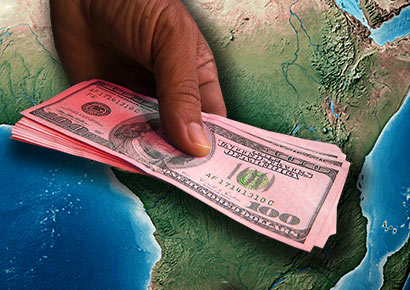LGBT inclusion for better African economies
 Modern African states are neglecting the economic costs of homophobia at their own peril.
Modern African states are neglecting the economic costs of homophobia at their own peril.
In addition to the institutionalised homophobia in the modern African context, there is a disregard for the economic contributions and benefits that the decriminalisation and inclusion of the LGBT community may have for African economies.
Institutionalised discrimination is bad for people and for societies. This has been proven in many African states where homosexual men are jailed and lesbian women face corrective rape.
From a reasoned view point, modern African economies disregard the truth that homophobia results in losses amounting to hundreds of millions of revenue a year.
Economically, homophobia disempowers people who could be contributing to the socio-economic progression of African countries. For example, in some countries those who identify as LGBT have no access to basic government services such as healthcare, protection by law and social status, to mention just a few.
While “Pink Currency” and “Pink Capitalism” are a reality at the international market level, evidence of such in Africa is difficult to find. Very few if close to no studies have been conducted that gauge the LGBT community’s capacity to acquire and retain jobs, how long they last in the jobs and why they end up losing jobs.
Skills shortage is a harsh and highly debated reality in African economies. A viewpoint that many do not consider is that skilled LGBT individuals would rather take their skill to overseas markets that are more inclusive and gender neutral. Significantly, this hampers the GDP outputs of countries that are not accepting of the LGBT community.
Legislation in most African countries is also discouraging gay tourism. As a result, gay people would much rather take their Pink Currency elsewhere. There is a huge amount of revenue from the Pink Market that is lost for nations in Africa that have criminalised homosexuality.
As proof points, progressive nations such as the Spanish have seen the economic and social benefits of tapping into and embracing same-sex populations.
Spain, which in 2005 became the third European nation to legalise gay marriage – after Belgium and the Netherlands – solidified its reputation as a holiday destination where the LGBT could feel comfortable and accepted.
As a result, LGBT tourism rose; with LGBT guests adding roughly US$6.8 billion per annum to the inclusive Spanish economy. LGBT people spend approximately 30 per cent more than conventional tourists in Spain, as reported by government estimates. The African economy is missing this opportunity.
The rise in xenophobic attacks in South Africa dented the South African tourism industry which impacted the economy. This received urgent attention from government and social advocates, but the killings and corrective rapes of lesbian women and other brutal acts of homophobia remain a subdued conversation.
At policy level, there are significant fissures. For example, most policies in modern Africa incorporate objectives for empowering women as a strategy for inclusive economic and Pan Africanist progression. However, specific LGBT-targeted policies lack conversation and acknowledgement. Other than non-governmental organisations that advocate for LGBT rights and inclusivity, African governments are lacking in their “pro-gay” agenda, agency and foot print.
It would be rewarding to see a holistic gender and sexuality based framework at policy level which fully encompasses the existence and economic contributions of the LGBT community.
It is worrying that African leaders seem not to be moved by campaigns and arguments for LGBT inclusivity, social justice, economic losses and the brain drain that African countries are experiencing as result of criminalised homosexuality.
The economic capability and buying power of the LGBT community is untapped and arguably, there is a lot of economic exploitation the community experiences as in the African realm. The LGBT population is still oppressed through stigma, legislation, corporate discrimination and religious structures that very few African policies seek to address.
Legislative and policy improvement is required. And at grassroots level, induction and education is needed to help in the creation of a mutually inclusive and diverse society. Our African economies need to look at an unbiased, just and accepting community that is inclusive of citizens beyond creed, gender and sexual orientation.
Kholekile Mnisi is a marketing communications specialist, blogger, writer and gender activist.
Leave a Reply